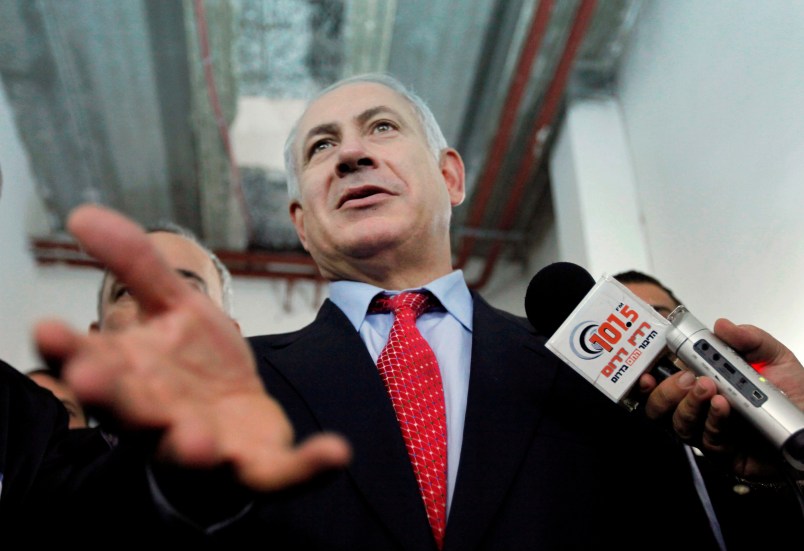JERUSALEM (AP) — Israeli Prime Minister Benjamin Netanyahu’s new government was sworn in late Thursday after a two-hour delay amid heckling by Arab lawmakers and harsh criticism from the opposition, indicating a tough road ahead for his narrow coalition.
Almost two months after winning Israel’s election, Netanyahu presented his new Cabinet to parliament ahead of a celebratory swearing-in ceremony. But the proceedings were delayed following a request from Netanyahu’s office, reportedly due to last-minute disputes over ministerial appointments.
Netanyahu delivered a brief speech outlining his government’s goals, which he said would include striving for peace with the Palestinians. With the coalition dominated by hard-liners who oppose concessions to the Palestinians, his remarks drew laughter and heckling from Arab lawmakers, eventually prompting three members to be escorted out and others to walk out in protest.
“Something here doesn’t work well,” Parliament Speaker Yuli Edelstein said at the opening of the session. He said that “under the circumstances” there was little to celebrate at the normally festive occasion.
The stormy session was the latest sign of the troubles Netanyahu faces as he begins a fourth term as prime minister.
Although Netanyahu’s Likud Party captured 30 seats in the March 17 election, making it the largest party, he struggled to cobble together a majority coalition in the 120-seat parliament. It took him the full six weeks permitted by law to put together a coalition with just 61 seats, the slimmest majority possible.
The coalition includes two ultra-Orthodox religious parties and the centrist Kulanu — whose agendas are heavily focused on internal affairs. In last-minute negotiations, the nationalist Jewish Home Party, which is affiliated with the West Bank settler movement, extracted major concessions from Netanyahu.
The influence of Jewish Home, along with the dominance of settler allies in Likud, makes it unlikely that Netanyahu will be able to make any bold peace initiatives. Netanyahu staked out hard-line positions during the campaign, saying he would not allow the creation of a Palestinian state on his watch. Although he later backtracked, the comments raised tensions with the U.S., which has made the establishment of a Palestinian state a top foreign policy goal.
With even a single disgruntled partner capable of bringing down the government, Netanyahu said he was “leaving the door open” for other parties to widen the coalition, and he has left the prestigious job of foreign minister vacant. Netanyahu said the current political system needs to be reformed to prevent frequent elections.
Opposition leader Yitzhak Herzog rejected the prime minister’s offer to join his coalition. He said it was “not a happy day” and called Netanyahu’s government “a circus.”
Herzog also criticized the lack of any political horizon with the Palestinians and predicted the government would not last long.



